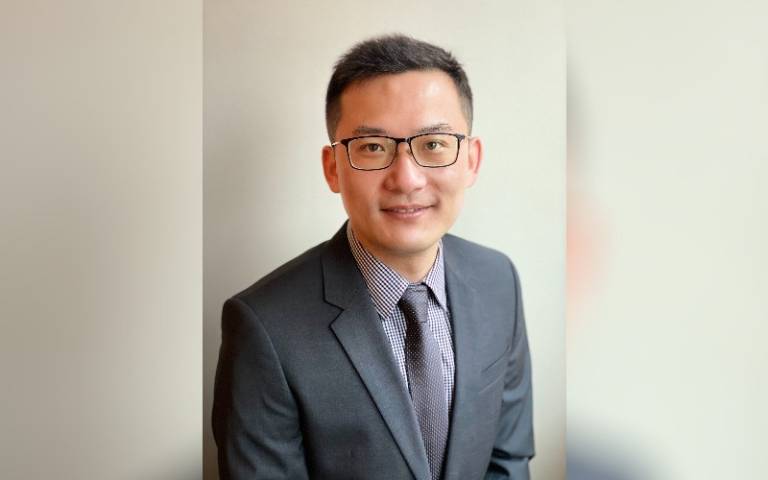Greening the manufacture process of batteries
5 September 2023
Dr Yang Xu (UCL Chemistry) will be working to improve the environmental impact of lithium-ion batteries, after winning funding from the UK Research and Innovation (UKRI) Faraday Battery Challenge.

Dr Xu joins the Faraday Institution’s CATMAT team as a co-investigator to lead research on the green and scalable manufacture of lithium-ion battery materials.
Various components of lithium-ion batteries are made of materials including the rare element cobalt, the mining of which can be harmful to the environment and is frequently only available from unreliable and often unethical suppliers. In order to scale-up the manufacturing process of lithium-ion battery materials for commercialisation, new techniques are required to produce them at a greater scale and using less energy. Dr Xu and his team will be working together with Professor Jawwad Darr (UCL Chemistry) to better understand the chemical processes that happen inside of lithium-ion battery cathodes and to improve the manufacture of the cathodes through a form of green synthesis.
Dr Xu said: “Manufacturing battery materials and understanding their electrochemistry are two important aspects of battery research. I’m very excited to have this opportunity to contribute to both aspects through this project. I’m confident that the outcome of the project will benefit other battery systems, facilitating the diversification of energy research beyond the project.”
The Faraday Institution is the UK’s independent institute for electrochemical energy storage research, skills development, market analysis, and early-stage commercialisation. Bringing together expertise from universities and industry, the Institution endeavours to make the UK the go-to place for the research and development of new electrical storage technologies for both the automotive and wider relevant sectors.
Funding for Dr Xu and his research is part of UKRI’s investment of £19 million in the Faraday Battery Challenge to support collaborative R&D projects co-founded by industry and managed by Innovate UK on behalf of UKRI. This effort is aimed at supporting the UK's battery research and facilities as well as growing innovative businesses to build a high-tech, high-value, high-skill battery industry in the UK.
Professor Pam Thomas, CEO of the Faraday Institution, said: “The Faraday Institution remains steadfast in its commitment to identify and invest in battery research initiatives that hold the greatest potential for making significant societal, environmental, and commercial contributions. This announcement signals the completion of our latest round of project refocusing, enabling us to allocate even more effort towards those areas of research that offer maximum potential in delivering transformative impact.”
Dr Xu joins other researchers who are part of the Faraday Battery Challenge. Dr Rhodri Owen (UCL Chemical Engineering) at the UCL Electrochemical Innovation Lab recently received an entrepreneurial fellowship for his start-up company, Sention, to develop an ultrasound technique to evaluate the physical properties of batteries. Professor Paul Shearing (UCL Chemical Engineering) who leads the UCL Electrochemical Innovation Lab, leads a team developing test cells with a combination of advanced lithium-ion cell design and novel silicon anode material.
Links
- Faraday Institution announcement
- Government announcement
- Dr Yang Xu’s academic Profile
- Dr Yang Xu’s research group
- UCL Chemistry
- UCL Mathematical & Physical Sciences
- Dr Rhodri Owen’s academic profile
- Professor Paul Shearing’s academic profile
- UCL Electrochemical Innovation Lab
- UCL Chemical Engineering
- UCL Engineering
- Faraday Institution
- CATMAT
- Nexeon
- Sention
 Close
Close

